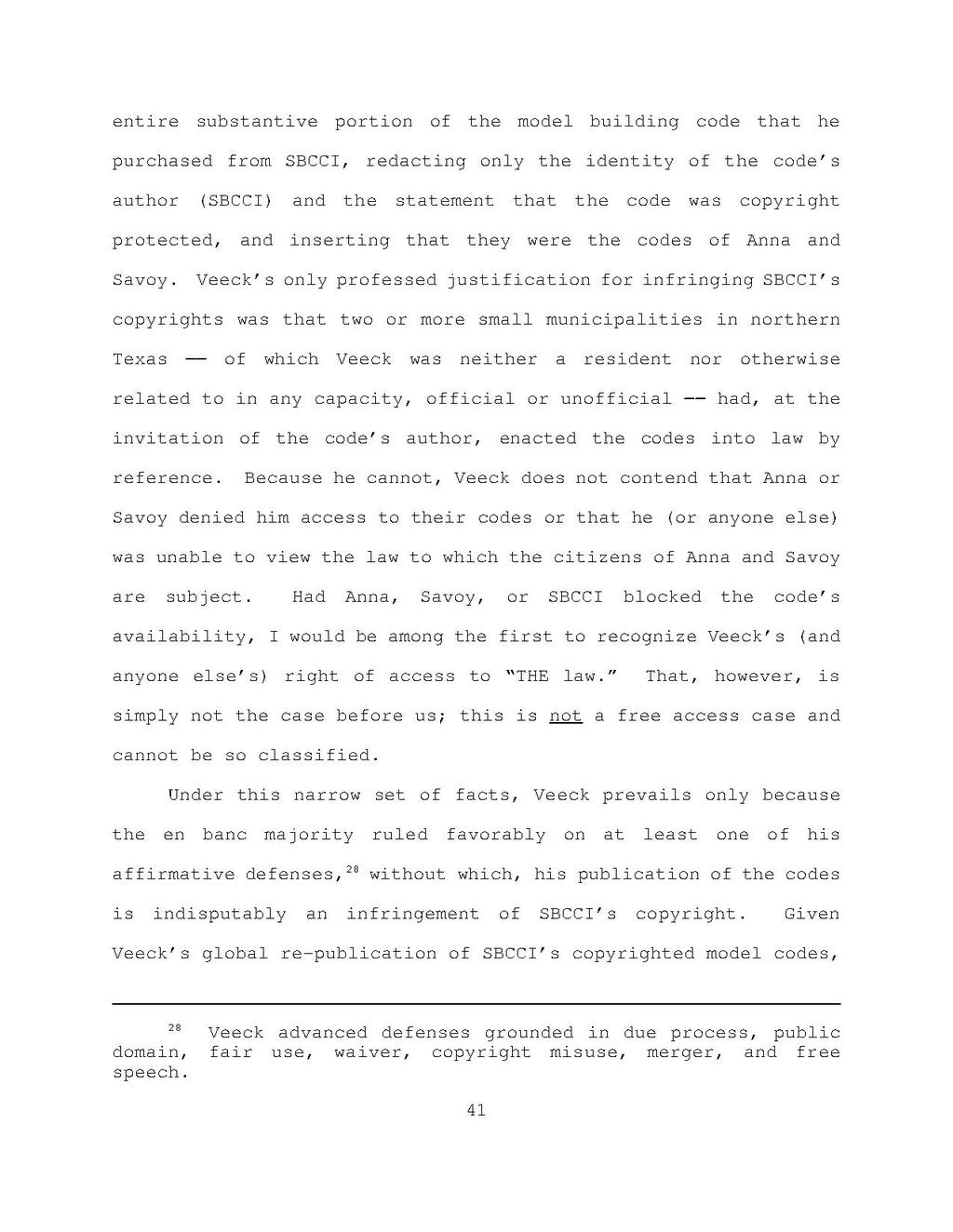entire substantive portion of the model building code that he purchased from SBCCI, redacting only the identity of the code's author (SBCCI) and the statement that the code was copyright protected, and inserting that they were the codes of Anna and Savoy. Veeck's only professed justification for infringing SBCCI's copyrights was that two or more small municipalities in northern Texas—of which Veeck was neither a resident nor otherwise related to in any capacity, official or unofficial—had, at the invitation of the code's author, enacted the codes into law by reference. Because he cannot, Veeck does not contend that Anna or Savoy denied him access to their codes or that he (or anyone else) was unable to view the law to which the citizens of Anna and Savoy are subject. Had Anna, Savoy, or SBCCI blocked the code's availability, I would be among the first to recognize Veeck's (and anyone else's) right of access to "THE law." That, however, is simply not the case before us; this is not a free access case and cannot be so classified.
Under this narrow set of facts, Veeck prevails only because the en banc majority ruled favorably on at least one of his affirmative defenses,[1] without which, his publication of the codes is indisputably an infringement of SBCCI's copyright. Given Veeck's global re-publication of SBCCI's copyrighted model codes,
- ↑ Veeck advanced defenses grounded in due process, public domain, fair use, waiver, copyright misuse, merger, and free speech.
41
